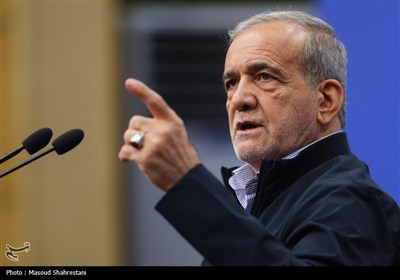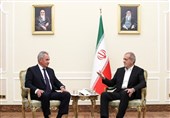Iranian MPs to Examine Water Supply Problems Created by Neighbors
TEHRAN (Tasnim) – Iranian lawmakers plan to establish “the water security committee” to examine the issue of building dams on rivers flowing into Iran by some neighboring countries, a member of the parliament's National Security and Foreign Policy Commission announced.
Speaking to the Tasnim News Agency, Abolfazl Hassanbeigi said in recent years, Turkey has built several dams on the Tigris and Euphrates rivers, which has caused Iran to face water shortages in areas near Hawizeh and Hammar Marshes, large wetlands fed by two branches of the Tigris River.
The water shortages have also caused dust pollutions in these areas, the parliamentarian noted.
He also denounced Afghanistan’s move to refuse to supply Iran with a share of water from the Hirmand River, which rises in Afghanistan and flows through eastern parts of Iran, and said prior to the move, nine billion cubic meters of water flowed into Iran but now it has decreased to 800 million cubic meters.
Hassanbeigi also pointed to the recent meetings of the National Security and Foreign Policy Commission chaired by Alaeddin Boroujerdi, saying that in the sessions, it was agreed to form “the water security committee”, hold talks with experts in this field, and submit a report on the issue to the Leader of the Islamic Revolution.
Back in March, unnamed sources in the Iranian Energy Ministry said the Afghan government has failed to meet its commitments under the 1973 treaty with Iran.
During the water year 1395-1396 (2016-2017), Iran has not received the amount of water from the border river stipulated in the treaty, sources said.
According to the treaty that was concluded in 1973, Afghanistan is committed to share waters of the Hirmand River with Iran and supply it with 26 cubic meters of Hirmand water per second or 850 million cubic meters per annum.
Kabul government is currently beginning the second phase of the development of the Kajaki dam, the largest dam in Afghanistan, which could aggravate the environmental situation in east and southeastern Iran.






